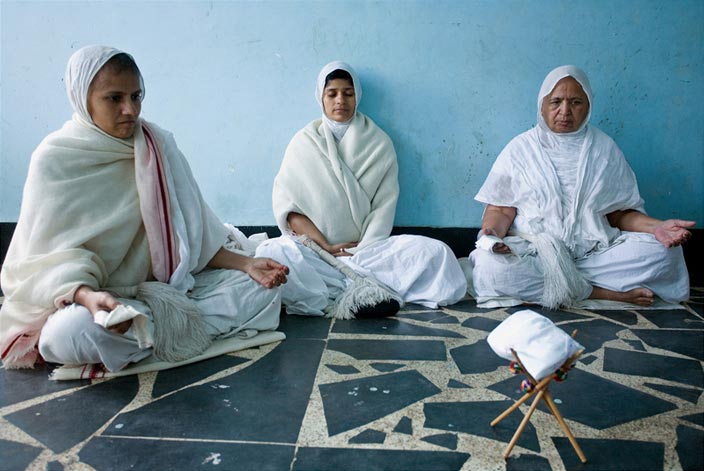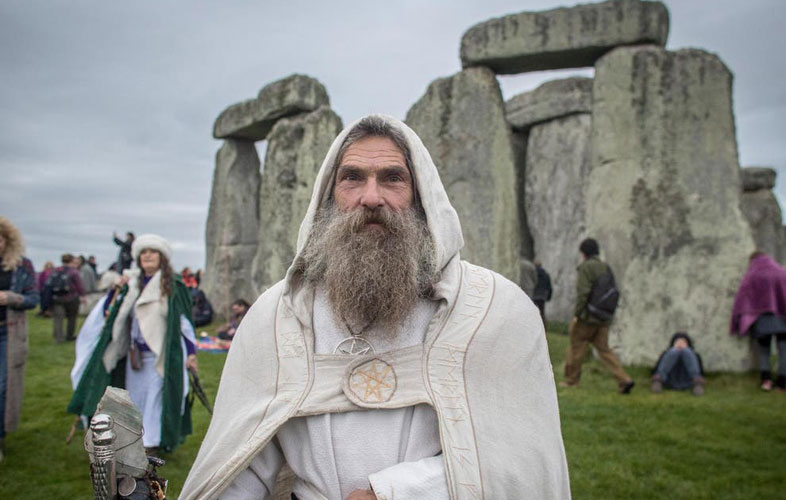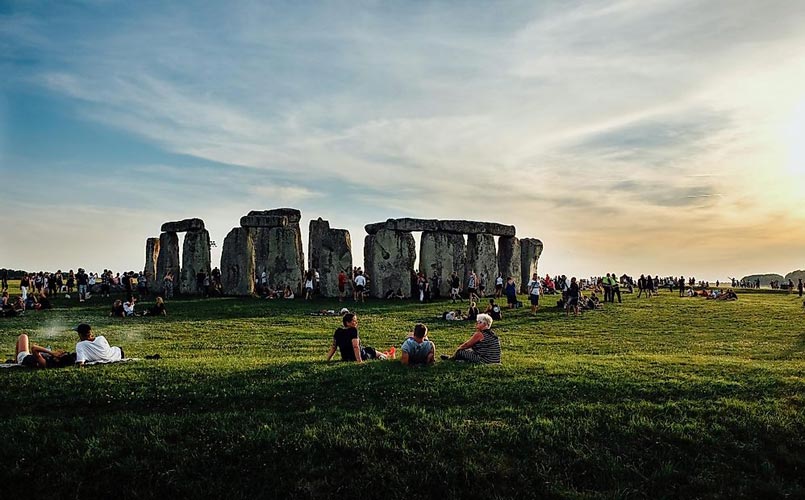Common questions on Jainism religion with answers Part 2/2
There are common questions part 2 on Jain religion and Jainism beliefs and Philosophy with answers From the Jain religion’s standpoint.

1- Is Jainism the oldest religion?
In spite of its obscure origin, Jainism is the oldest religion in the world, or truly it is not a religion but more like a way of life, Whereas Jains believe it to be eternal, Jainism is amply thought to have begun in the Indus valley civilization around 3000 B.C.
2- What are the 12 vows of Jainism?
The twelve vows are described as follows:
Five Main Vows of Limited Nature (Anuvratas):
-
- Ahimsa Anuvrat – Non-violence Limited Vow.
- Satya Anuvrat – Truthfulness Limited Vow.
- Achaurya Anuvrat – Non-stealing Limited Vow.
- Brahmacharya Anuvrat – Chastity Limited Vow.
- Aparigraha Anuvrat – Non-attachment Limited Vow.
Three Merit Vows (Guna-vrats):
-
- Dik Vrata – Limited area of activity vow.
- Bhoga-Upbhoga Vrata – Limited use of consumable and non-consumable items vow.
- Anartha-danda Vrata – Avoidance of purposeless sins vow.
Four Disciplinary Vows (Siksha-vratas):
-
- Samayik Vrata – Meditation vow of limited duration.
- Desavakasika Vrata – Activity vow of limited space.
- Pausadha Vrata – Ascetic’s life Vow of limited duration.
- Atithi Samvibhaga Vrata – Limited charity vow.
3- What are the five great vows of Jainism?
-
- Non-violence – Ahimsa.
- Truth – Satya.
- Non-stealing – Achaurya or Asteya.
- Celibacy/Chastity – Brahmacharya.
- Non-attachment/Non-possession – Aparigraha.
4- How many types of Jains are there?
Jains are divided into two major sects; the Digambara (meaning sky clad) sect and the Svetambara (meaning white-clad) sect. Each of these sects is also divided into subgroups. The two sects agree on the basics of Jainism but disagree on: details of the life of Mahavira.
5- What is the Jain symbol called?
It’s Symbol of Ahimsa, The hand with a wheel on the palm symbolizes Ahimsa in Jainism. The word in the middle is “ahiṃsā” (non-injury). The wheel represents the dharma chakra, which stands for the resolve to halt the saṃsāra through the relentless pursuit of Ahimsa.
6- What is Purva in Jainism?
The Fourteen Purvas, translated as ancient or prior knowledge, are a large body of Jain scriptures that was preached by all Tirthankaras (omniscient teachers) of Jainism encompassing the entire gamut of knowledge available in this universe.
7- What is Triratna in Jainism?
In Jainism, the three jewels (also referred to as ratnatraya) are understood as samyagdarshana (“right faith”), samyagjnana (“right knowledge”), and samyakcharitra (“right conduct”). One of the three cannot exist exclusive of the others, and all are required for spiritual liberation.
8- Do Jains celebrate Diwali?
Diwali has a very special significance in Jainism, It is celebrated at the same time as the Hindu festival of Diwali. Diwali marks the end of the year for the Jains and it likewise remembers the passing commemoration of their 24th Tirthankara Mahavira and his achievement of moksha.
9- How do Jains live?
Jains are strict vegetarians and live in a way that minimizes their use of the world’s resources. Jains believe in reincarnation and seek to attain ultimate liberation – which means escaping the continuous cycle of birth, death, and rebirth so that the immortal soul lives forever in a state of bliss.
10- Why Jains are so successful?
The ethos of ahimsa has been critical,” he said. Researchers say the factors that led to success are an entrepreneurial spirit, urbanization, and joint family culture extended to business.
11- Where do most Jains live?
Per the 2011 census, there are 4,451,753 Jains in the 1.21 billion population of India, the majority living in Maharashtra, Rajasthan, Gujarat, and Madhya Pradesh, however, the influence of Jainism has been far greater on the Indian population than these numbers suggest.
12- Why is Jainism not popular?
Jainism can never become a popular religion because of its asceticism,” says Hampa Nagarajaiah, an eminent Kannada scholar on Jainism. Popularly known by his pen name Hampana, Mr. Nagarajaiah is one of the foremost exponents of Jainism.
13- What is the percentage of Jains in India?
The Jain population in India according to 2011 census is 0.37% i.e. 4,451,753 (Males 2,278,097; Females 2,173,656) out of the total population of India 1,210,854,977 (males 623,270,258; females 587,584,719).
14- Is Jain diet healthy?
To sum up, the Jain Diet is a significantly restrictive dietary plan, based on the principle of nonviolence. The main reason for adhering to this diet has to be ethical, this is not a diet for weight management. Although, it might become your healthy lifestyle and bring its benefits for your body in the long term run.
15- Why do Jains drink boiled water?
The fermenting process kills countless microorganisms. Stricter Jains lookout for these tiny lifeforms by only drinking water which has been boiled to stop the microorganisms multiplying.
16- Why do Jains wear white?
Because they are allowed no possessions whatsoever they live without clothes and go “skyclad”, which means naked. (Digambara nuns wear simple white clothes.) Their nakedness is also a statement that they are beyond feelings such as modesty and shame.
17- Can Jains eat cabbage?
Green-leafed vegetables, such as cabbage and cauliflower, which might harbor insects in their leaves, are not eaten by monks and nuns and while not forbidden to laypeople, are regularly avoided by them on holy days, A further stipulation incumbent on observant Jains is that of not eating at night.
18- Do Jain monks take bath?
Jain monks and nuns only take sponge baths, since bathing wastes a lot of water; they wear frugal clothes that they tailor themselves and go begging for their needs. The vow of celibacy is so strict they cannot touch any male, including little boys.
19- Why do Jains pluck their hair?
before taking the vow of Deeksha, both male and female monks pluck their hair out this way, the practice of kaya klesh has not yet picked up among Jain women devotees. Kaya klesh, a ritual in which every hair strand is pulled out till the head is bald, is a must for Jain monks.
20- Do Jain monks marry?
Jains must have sex only with the person they are married to. Jains must avoid sexual indulgence even with that person. Jains must give up sex, if possible after the marriage has yielded a son.
21- Is there any Jain in Pakistan?
Jainism in Pakistan has an extensive heritage and history, although Jains form a very small community in the country today.
World Religions
Read also:
Jain religion | Common questions on Jainism Part 1/2
Jainism religion | History, Beliefs, Practices, & More…
Jainism beliefs | What are the major beliefs?
Kabbalah religion | Common questions on kabbalah
Zoroastrian faith | Common questions on Zoroastrianism
Confucianism religion | Common questions on Ruism Part 1
The church of the flying spaghetti monster | All about it




3 thoughts on “Jain religion | Common questions on Jainism Part 2/2”